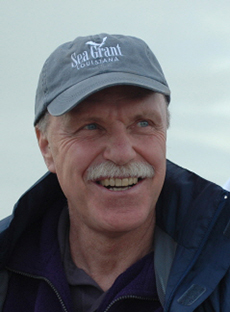Ray Hilborn, a University of Washington professor of aquatic and fishery sciences, recently received the 2016 International Fisheries Science Prize at the World Fisheries Congress in Busan, South Korea.
The award was given to Hilborn by the World Council of Fisheries Societies’ International Fisheries Science Prize Committee in recognition of his 40-year career of “highly diversified research and publication in support of global fisheries science and conservation.”
For Hilborn, who has received numerous awards for his research — including the Volvo Environment Prize and the Ecological Society of America’s Sustainability Science Award — this recognition is particularly significant because it comes from other experts in fisheries science.
“It’s very gratifying in that it is experts in fisheries that are doing the evaluation and selection for this award,” Hilborn said.
Hilborn’s research and teaching at the UW is in natural resource management and conservation. He has authored several books, including “Overfishing: What Everyone Needs to Know,” and has published more than 200 peer-reviewed articles. He is a fellow of the Washington State Academy of Sciences, the Royal Society of Canada and the American Academy of Arts and Sciences.
The World Fisheries Congress meets every four years in different locations, bringing together fisheries scientists from academic institutions and nongovernmental organizations. This is the seventh meeting; the first took place in Athens, Greece, in 1992.







